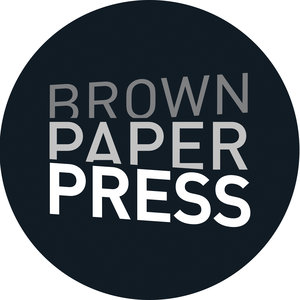Until a couple of years ago, I despised nonfiction.
Autobiography, biography, history, self-help, philosophy, and — you guessed it — memoir. I refused to give any of it a chance, believing that nonfiction was nothing more than a boring recitation of facts and that memoir was a pretentious pseudonym for autobiography. I was among the crowd that loved to hate the entire genre.
Then, during my senior year in college, I was forced to challenge my preconceived notions when a professor assigned Stephen King’s memoir, On Writing: A Memoir of the Craft.
The first half of On Writing details King’s personal journey, the second half on writing advice. Both parts not only taught me, but completely captured my attention. For the first time, I couldn’t put down a nonfiction book. A few months after that, I was brought on as an intern at Brown Paper Press. And through editing memoir and other nonfiction, my interest in the genre only grew. Since then, memoir has become my gateway into other nonfiction — philosophy, how-to, and even (I can’t believe I’m saying this) self-help.
Here are my top five reasons to give memoir a chance.
1. It feels like fiction.
I always associated memoir with autobiography and biography (which, for me, connoted school learning, bland overviews of people’s careers, and the lives of long-dead people). But memoir is fun. It is the author’s story. Just like the novels I’ve always been drawn to, memoir is character-driven; contains drama, misconceptions, and character development; and shares the author’s subjective, emotional and experiential perspectives on life.
2. The stories are romantic and authentic.
I love the feeling of romanticizing my life to be like the novels I read. I love the embarrassing moments, the people falling in love, all the crazy encounters. But I hate coming to terms with the distortion of my expectations about what real love looked like from all that romanticizing. I also hate thinking, No one would ever do that in real life, or, Who talks like that? Memoir tends to have all the things I love without the “unbelievability” factor. What memoir shares is real. It is full of emotion, vulnerability and humor. Often, it’s full of love — the kind that is exciting and cute and fun to read about… but not the kind that makes you yearn for something untouchable and unreal. It shows the truly difficult parts of love, too. The conflicts that are too menial for a novel, but cause relentless trouble in our own relationships. It shows things that really happen, how they happen, from the emotional and sometimes tilted glasses of someone who was there.
3. You’ll grow as a person.
Especially in topically focused memoirs, you get solid takeaways, without feeling like you’re being lectured to. In Maybe You Should Talk to Someone by Lori Gottlieb, which follows the journeys of a therapist and four of her patients, I finished each chapter with numerous lessons to reflect on. From one patient I grew to better understand my father, from another I learned how to forgive myself, and from the author’s story, I was able to see the value in a nonlinear path. The memoir not only helped me develop myself, but it taught me compassion, discomfort, and how to listen.
4. You’ll shove yourself out of your comfort zone.
It’s easy to get caught up in routine, and in the things you already know and love and understand. However, there’s no denying that trying new things is exciting and beneficial. What better way to combine both than to try something you already love (reading) in a different way (memoir)? You could decide you hate some or all memoirs you pick up, but you can’t knock it until you try it. Even better, your reading journey could expand and you could find a new genre you love. Like me, you could be inspired to try other nonfiction and even pick up some crazy-good covers like the ones on World of Wonders.
5. How else will you read our wonderful books? ;)
How else will you get the chance to read the wonderfully incredible books by Brown Paper Press? (Maybe I’m biased, or maybe it’s fact. How will you know unless you read them?) Not only do our memoirs have the beautiful covers I mentioned in point #4 — especially the one coming this fall, Crybaby — but they are mission-oriented, progressive and explore a huge variety of topics. Not to mention, it’s impossible to have anything edited by Wendy without it ending up with some witty writing.
If you want a story that’s real and beautiful and emotional and you want to learn while you’re at it, there’s no better option than to pick up a memoir. Not only does it have all the drama, but you’ll set the book down as a better person (and probably still able to see how that drama was most likely avoidable and regrettable, rather than its tendency to bear fruit in fiction).
Kaylee May is an intern at Brown Paper Press.






